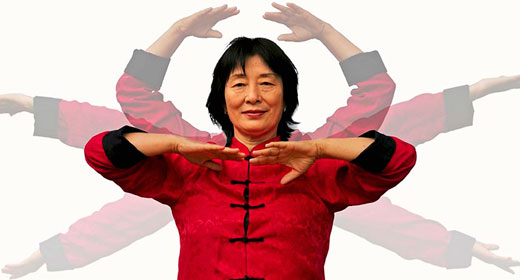Accepting Change in Others—
 by Donna Quesada: My Zen teacher once quipped that a prophet is never recognized in his own village. The native townspeople that grew up with the profit, those who “knew him when,” can’t acknowledge that the person they grew up with has changed. They can’t acknowledge it because they’re attached to who he was, and can’t accept who he is now.
by Donna Quesada: My Zen teacher once quipped that a prophet is never recognized in his own village. The native townspeople that grew up with the profit, those who “knew him when,” can’t acknowledge that the person they grew up with has changed. They can’t acknowledge it because they’re attached to who he was, and can’t accept who he is now.
What they are really doing is imposing their agenda on him, clutching on to their ideas of who they want him to be, holding him to who he was in the past. We all do this to our loved ones in some way, and this is often the source of conflict at family reunions. But we do it to one another under rationalized pretexts: “We just care about you, etc.”
I watch a lot of Beatles documentaries, and I took interest when I learned that this is exactly what George Harrison experienced when he became more heavily involved with his Krishna devotee friends. He discovered that when he deepened his own commitment to the movement, such as when he purchased a house to be used as a Krishna temple and retreat site in England, friends and family actually got angry with him. He said: “I’m provoking a bad reaction…and the stronger the commitment on my part, the stronger the animosity becomes.”
Perhaps people are threatened by growth and change in their peers, and they try, either consciously or unconsciously, to stifle their growth and hold them down.
Impermanence—
According to Buddhist teachings, the fact of change is what makes life so hard for us. Nothing stays the same… not even for a minute, but we just don’t notice right away because usually it’s very gradual. Down to the very cells in our body, everything is in constant flux.
Yet, consider this: In this world of change, we are attached to the way we like things to be. We are attached to the ones we love. We are attached to our dreams. We are attached to our routines. Mostly, we are attached to ourselves, and more subtly, to the the idea of ourselves… that who we were and who we are will exist over time. And in our minds, that person will eventually realize the goals and dreams that we always envisioned for ourselves.
But if everything is constantly changing, why are we so attached to all of this? When Buddha emphasized the importance of impermanence, he was giving us the cue to letting go.
I was a dancer in my early 20s, but injuries prevented me from continuing on. I was devastated. But with the growth of my teaching career, the importance that dancing once held in my life naturally diminished with time. As I look back on my life now, with the awareness of impermanence, I can see how I once placed so much of my identity and happiness on the ability to dance. What was once so important, often seems so inconsequential with time.
In this way, remembering the truth of impermanence need not be the source of our suffering, but rather the key to our liberation, as it enables us to accept life’s changing conditions more easily. It also reminds us to appreciate what is truly important and stop wasting energy on things that aren’t… because we won’t always have it!
It also prompts us to shine that light of awareness on others… by remembering that they too, have changed! They are not the person they used to be. They have become who they were to become… and are still becoming. We are all, always, in the process of becoming.







































